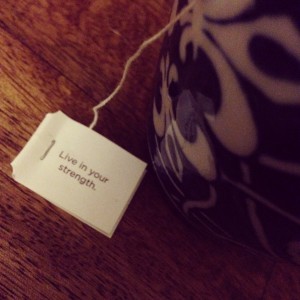 I’ve seen loads of “Live Your Best Year Yet” videos, blog posts, free workbooks, and paid programs coming across my radar these last few weeks.
I’ve seen loads of “Live Your Best Year Yet” videos, blog posts, free workbooks, and paid programs coming across my radar these last few weeks.
‘Tis the season for setting resolutions, goals, and intentions. But with the abysmal success rate most people seem to have sticking to their resolutions and goals, I can’t help wondering, why do we do it?
It’s just what people do at the end of the year.
So of course I do it, and I’m guessing you do too. But how many times have you ended the year only to look back at the goals you set and feel disappointed? Like you failed? Like you need to stuff your face with Christmas cookies to help you forget about all the things you didn’t do (once again) this year?
Yeah, me too.
But it doesn’t have to be that way.
There are a few ways that we set ourselves up to fail.
- We write our goal or intention in a notebook somewhere and then don’t look at it again.
Let’s face it, when the rubber meets the road, and life is running at full steam, it’s really easy to forget about that thing you wrote on a page in that notebook that one time in December. “Out of sight, out of mind” is a cliche for a reason.
Try this instead: Write your intentions and goals on a post-it note that you see everyday. Alternatively, write your goals at the top of the page when you make your daily ToDo list. Either way, remember that to make anything stick, you need to keep it front and center.
- We pick things we think we should do, not things we want to do.
I used to work for a company that, when it came time to fill in my self-evaluation (which included a space for my personal career goals), would ask me to set personal goals that would benefit the team. Huh?
So, ever the good girl I would set the goals I thought I should set because that was what was expected from me. Turns out I was pretty good at making stuff up that sounded really good on paper. Too bad most of that paper got recycled.
When you set goals out of expectations or “shoulds”, your heart isn’t in it. And if your heart isn’t in it, you won’t have much real motivation to do it (and it’s really just a waste of your energy). These goals feel like a burden instead of inspirational — which is really what this time of year is about.
Try this instead: Ask yourself what you want to feel at the end of next year? What would make you feel more alive?
- We don’t know why our goals or intentions are important to us.
Anything that we actually want to make happen in our life and in our world (goals, intentions, wishes, dreams, resolutions, whatever) need to be connected to our values, purpose, mission, and/or our why.
When that connection is missing, something deep inside of us doesn’t really believe that this goal is worth our time. Or we don’t believe it’s doable. Or we don’t believe that it will make a difference. The bottom line is that without grounding it in what matters, we don’t believe in our goal, and it just floats away untethered.
Try this instead: If you have already identified your purpose, values, mission, or your why, take the time to connect the dots between these guiding principles and the goals and intentions you set for the new year.
If you haven’t already identified these things, you can start now. Here’s a shortcut: Take a look at your goal and ask yourself what’s important about it? Notice how you feel. You’re looking for what feels right more than what makes logical sense. Sit with it and trust your inner compass.
How do you keep yourself on track with your goals and intentions?
